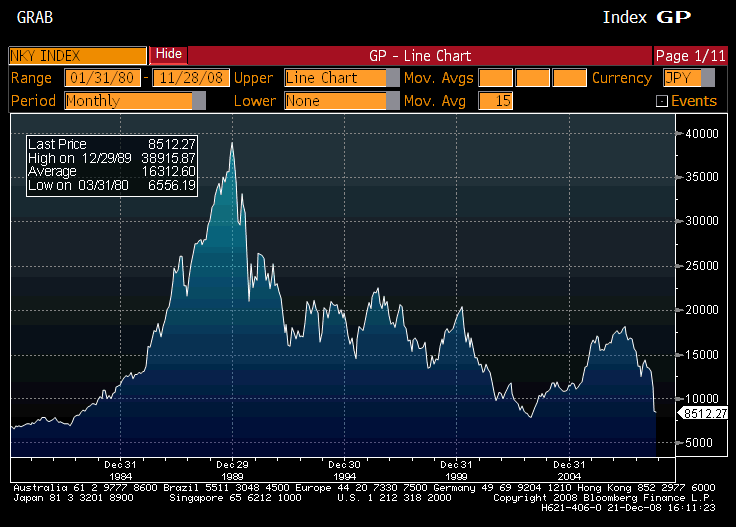According to the Federal Open Market Committee’s (FOMC) minutes, released on Tuesday, some members think inflation targetting would be a useful way to persuade people that prices will not fall, i.e., forestall deflationary expectations. WSJ.com seems to have the interpretation about right,
“The added clarity in that regard might help forestall the development of expectations that inflation would decline below desired levels, and hence keep real interest rates low and support aggregate demand,” according to the minutes.
In other words, a commitment to an inflation target, say annual growth of 1.5% to 2%, would help keep prices from falling outright and prevent the kind of economic chaos that plagued Japan in the 1990s and the U.S. during the Great Depression.
The Congressional Budget Office thinks there is still time to prevent deflation (or perhaps it is the new measures already in the works that will keep inflation positive). Their forecast for 2009 (see Table 1 in today’s testimony) predicts low inflation, e.g., the PCE price index is expected to be 0.6 percent for 2009 – but note that the CPI is seen as barely positive, at 0.1 percent, over the same period.
Meanwhile, the financial markets (e.g., inflation swaps) predict minus 4 percent inflation in 2009 (part of which is likely due to lower commodity prices) and then a small degree of deflation over the next few years. According to this view, we should next see today’s price level again in about 5 or 6 years.
Of course, the financial markets could well be wrong. It may be that the markets haven’t fully digested or understood the size of the fiscal stimulus, and it may be that further news about other parts of the Obama approach (including the directly on housing and banking) will significantly change inflation expectations.
But it is striking that financial market inflation expectations – e.g., over a five year horizon – have barely moved from their low/near deflation level since it became clear that Mr Obama would win the election or since we first realized that a massive fiscal stimulus would soon arrive (see slide 2 in my presentation from Sunday; the scale is hard to read, but the decline is from around 2% through the summer to around 0% currently). At least for now, whether or not we are heading for deflation remains the key open question.
